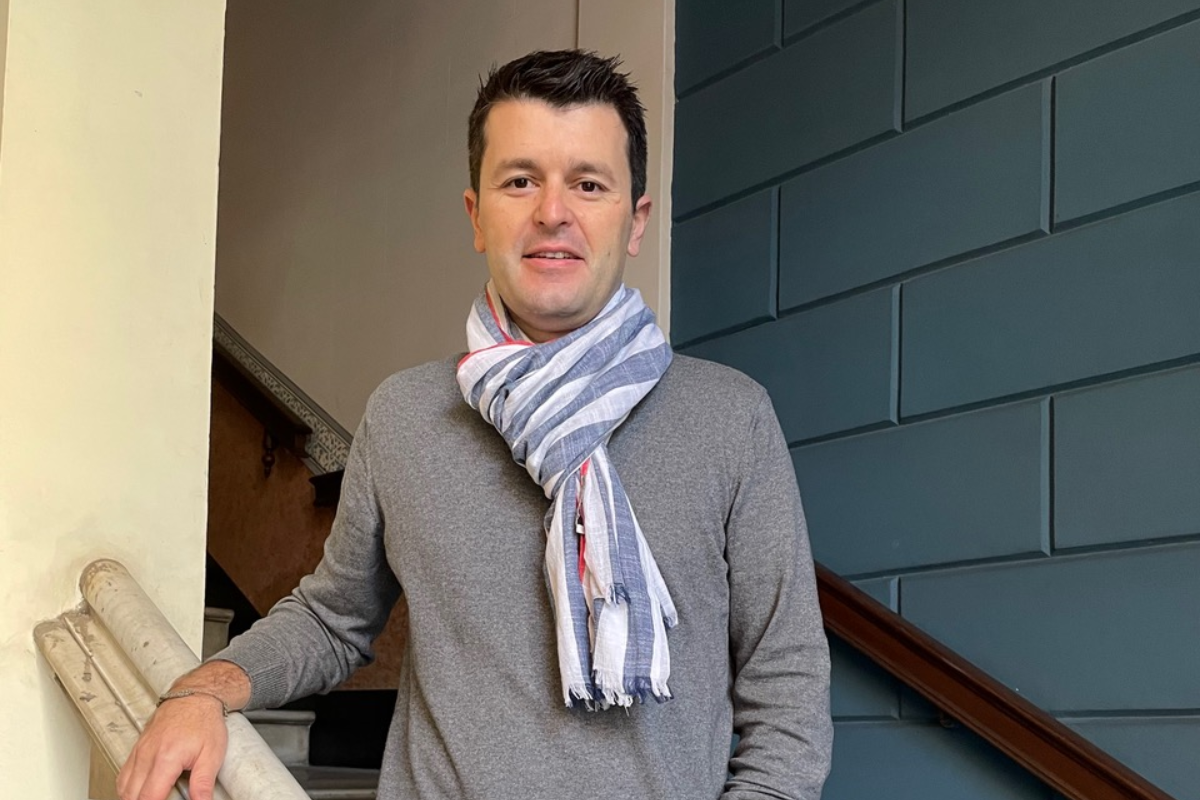Frederico Moscoso: «Barcelona has tremendous charisma and is well capable of innovating»

Frederico Moscoso. General Manager at Casa Bonay
A native of Portugal and married with three children, Frederico Moscoso settled in Barcelona 13 years ago after working in Santiago de Compostela, Cannes, Madrid, Puerto de la Cruz, and Valença (in Portugal). He is currently General Manager of the Hotel Casa Bonay in Barcelona, a unique hotel composed of simple, sustainable spaces in which there is an emphasis on quality, attention to detail, cultural awareness, and the importance of connecting with the local community. "We believe in the importance of reconnecting body and soul," he says. There are currently 30 people working at the hotel, far fewer than before the pandemic.
Why did you choose Barcelona?
I didn't choose Barcelona; the company I was working for chose it for me. I didn't really want to come, but it was a promotion and I didn't dare say no and I didn't think Barcelona was so bad either. Then I changed jobs, fell in love with the city, and also with Nuria, the woman who was going to become my wife. So we ended up choosing to stay here. We then had our first daughter, Clara, got married, and soon after, our second daughter, Martina, was born. We have a house here now and have put down roots in the city.
What are the city’s strengths?
Barcelona is an incredibly appealing city. It is by the sea but also very close to the mountains, a combination that is not often found together; it also has an excellent climate and the gastronomy is superb. At the same time, it is a city that has good communications, while its inhabitants are hardworking, serious, responsible, and open to outsiders. It is well capable of innovating and is at the forefront in a whole variety of fields such as culture, design, pharmacology, medicine, and automotive engineering. Barcelona is a benchmark for many things and has tremendous charisma.
Which aspects of the city need to be improved? How?
I wish there was less noise. In the mornings, I walk my daughters to school and in some streets I can hardly hear them speak. Pollution is also a major challenge as it harms all those who live here. I go to work every day on my bike and I do my errands by bike as well. I must have cycled some 1000km around the city; it's my way of doing my bit. I would encourage everyone to try cycling or using a scooter; there really needs to be less traffic in the center.
The insecurity generated by pickpockets is also terrible and tougher laws need to be implemented to deal with the problem.
What are the strengths that will help the city overcome the COVID-19 crisis?
In my opinion, Barcelona's main strength is its people, its people and their great capacity for work and commitment. The business fabric of the city and its capacity for innovation are also key. If the people, the stores, and the businesses survive, the city survives. I have no doubt about that.
What challenges do you think the city will face once the health emergency is over?
The same as before the pandemic: pollution, mobility, and safety.
What do you expect from Barcelona in the coming years?
I hope that it recovers, that it fills up with life again, and that its people recover their businesses and jobs. I also hope that there will be new start-ups and that the visitors and the profusion of new talent that we have seen in recent years return. People always notice what's happening in Barcelona, and this will continue to be the case.
Which city do you consider to be your home city? What do you miss most?
Without a doubt, Barcelona is my city, but what I miss most is enjoying surfing the waves on the beaches of Portugal. Of course, I also miss my friends and family, who are a long way away and have been much missed, particularly during the coronavirus pandemic.








